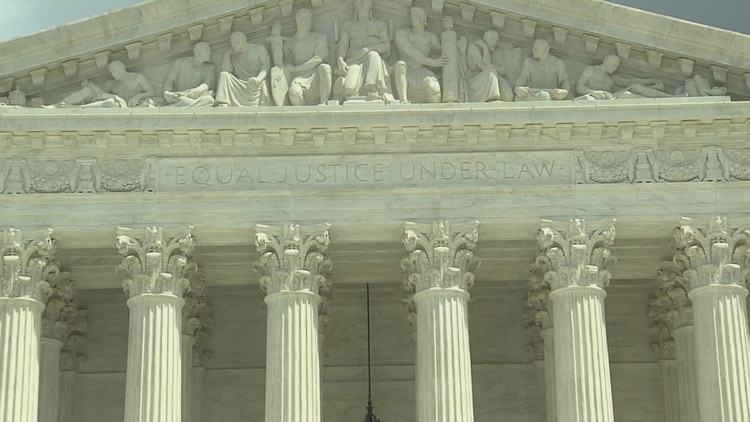The Supreme Court on Monday waded into the culture-war debate over gender-affirming care for transgender minors by agreeing to resolve challenges to a law in Tennessee that seeks to restrict it.
The justices will hear a Biden administration appeal of a court ruling that upheld the measure. Oral arguments and a ruling are expected in the court’s next term, which starts in October and ends in June 2025.
The case marks the first time the court, which has a 6-3 conservative majority, will issue a ruling in the battle over transgender rights for teenagers, which has raged in both the health care and education contexts.
The state measure restricts puberty blockers, hormone therapy and surgery for minors. The surgery ban is not at issue in the Supreme Court case.
Tennessee Attorney General Jonathan Skrmetti said in a statement that he had "fought hard" to defend the state's law.
"I look forward to finishing the fight at the United States Supreme Court," he said. "This case will bring much-needed clarity to whether the Constitution contains special protections for gender identity."
In a separate case, the court in April allowed Idaho to mostly enforce a similar law.
More than 20 states have enacted similar bans, according to the Movement Advancement Project, an LGBTQ rights think tank. Whatever the court rules will affect those states, as well.
Major medical organizations say gender-affirming treatments are an effective way to treat gender dysphoria, the clinical term given to the distress people can experience when their gender identities are in conflict with the genders assigned to them at birth.
Plaintiffs, including transgender teens and their families, say the law violates the Constitution's 14th Amendment, which requires that the law apply equally to everyone, in part by barring medical treatments for transgender people that are available to others. They also say the law violates the right of parents to make health care decisions for their children, although the Supreme Court will not weigh in on that issue.
Solicitor General Elizabeth Prelogar urged the Supreme Court to take up the issue, saying the law "is part of a wave of similar bans preventing transgender adolescents from obtaining medical care that they, their parents, and their doctors have all concluded is necessary."
A federal judge blocked the Tennessee ban on puberty blockers and hormone therapy but left in place a ban on surgery on the grounds that the plaintiffs did not have legal standing to challenge it.
In a separate Kentucky case the justices did not act on, a federal judge blocked the ban on puberty blockers and hormone therapy. The plaintiffs did not challenge the restrictions on surgery.
In a ruling addressing both laws, the Cincinnati-based 6th U.S. Circuit Court of Appeals ruled in favor of the states in September.
Judge Jeffrey Sutton wrote that no one was questioning "the existence of gender dysphoria or the distress caused by it," but he indicated the question of what treatments should be available to those 17 or under should be left to elected officials.
"This is a relatively new diagnosis with ever-shifting approaches to care over the last decade or two. Under these circumstances, it is difficult for anyone to be sure about predicting the long-term consequences of abandoning age limits of any sort for these treatments," he wrote.
The plaintiffs then asked the Supreme Court to step in. The court has until now largely stayed out of disputes involving transgender students.



